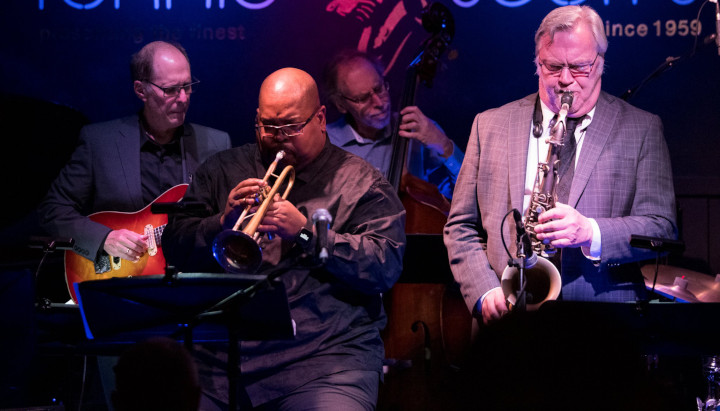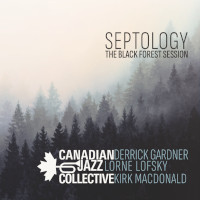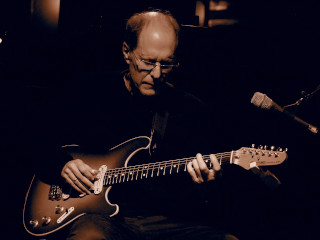
It should probably come as no surprise that the wonderfully diverse, world-class city of Toronto is home to a vibrant jazz scene. Just don’t expect to hear about it from a Canadian.
Though chest-pounding exhibitionism is anathema to the unfailingly polite, deferential Canadian character, a group of Toronto’s best will arrive in town this weekend with proof of concept. They call themselves the Canadian Jazz Collective, and though the name implies a certain one-for-all modesty, these six musicians could easily be called the Canadian All-Stars.
Saxophonist Kirk MacDonald, guitarist Lorne Lofsky, bassist Neil Swainson, and pianist Brian Dickinson are respected players on the world’s stages, and even though trumpeter Derrick Gardner has returned to his native Chicago after ten years in Winnipeg and drummer Bernd Reiter is Austrian, so what? Canada’s a welcoming place, eh?
MacDonald (whose clarinetist daughter Virginia is a CJC member, but cannot make the BOP STOP gig) Gardner and Lofsky are the primary composers, each revealing a facet of the broad jazz mainstream that the CJC likes to navigate.

On the 2023 release Septology – The Black Forest Session (HGBS Blue Records), MacDonald’s “Silent Voices” and “Shadows” show an affinity for rich voicings and juicy harmonies while Gardner offers explosive hard bop in the ‘60s Blue Note tradition with “Dig That” and “Terre DuSable.” Lofsky shows off his compositional range with “The Time Being,” a pensive major-minor bossa and the breezy “Highway 9.”
The most impressive cut on the recording might be “Waltz You Needn’t,” where the composer Lofsky cuts up the melody of Thelonious Monk’s angular 4/4 swinger “Well You Needn’t” and rearranges the pieces freely over the bar lines of a waltz. Its offhand brilliance is Canadian through and through.
“There is a certain identity to Canadian players,” Lofsky rather reluctantly admitted when I reached him by phone at his home north of Toronto. And he should know. Lofsky was vaulted to international prominence four decades ago by no less a figure than Oscar Peterson, Canada’s most recognizable jazz musician.

Lofsky is heir to a lineage of great Canadian guitarists Sonny Greenwich, Lenny Breau and Ed Bickert, with whom he had the privilege of playing when he came up on the late ‘70s Toronto scene. “The three of them were all incredible musicians and they all have their own recognizable sound,” Lofsky said. “A lot of Canadian guitar players are definitely influenced by Ed and Lenny, and in a secondary fashion I certainly was.”
Before joining Peterson’s band, Lofsky cut his teeth at legendary Toronto clubs such as George’s Spaghetti House and Bourbon Street. “I had a chance to play with people like Chet Baker and Jimmy McGriff and Carl Fontana and Bob Brookmeyer and Pepper Adams and a whole litany of other people,” he said. “And most of the time it was for two weeks. It was a great training ground for me, like going to school, you know?”
School is something Lofsky knows well. The guitarist, who will turn 70 in May, recently retired from a 45-year teaching career at Toronto’s York University where he helped to train an exciting new generation of Canadian players—players who are making a welcome and perhaps overdue mark on international stages.
“Canada for decades has been a real hotbed of all types of music, whether it’s legitimate classical or avant-garde jazz or Dixieland and quite a cross-section of genres or sub-genres,” he said, adding, “It’d be nice if Canada was recognized a bit more on the world stage, and I think Canadians have to be a little bit better at blowing our own horn, so to speak.”
That wouldn’t be very Canadian, metaphorically speaking, but no matter. The case for Canadian jazz is best made on the bandstand: Friday night at BOP STOP.
Canadian Jazz Collective, Fri., March 22, 8 p.m., BOP STOP, 2920 Detroit Ave., Cleveland. Tickets $25, available here.

